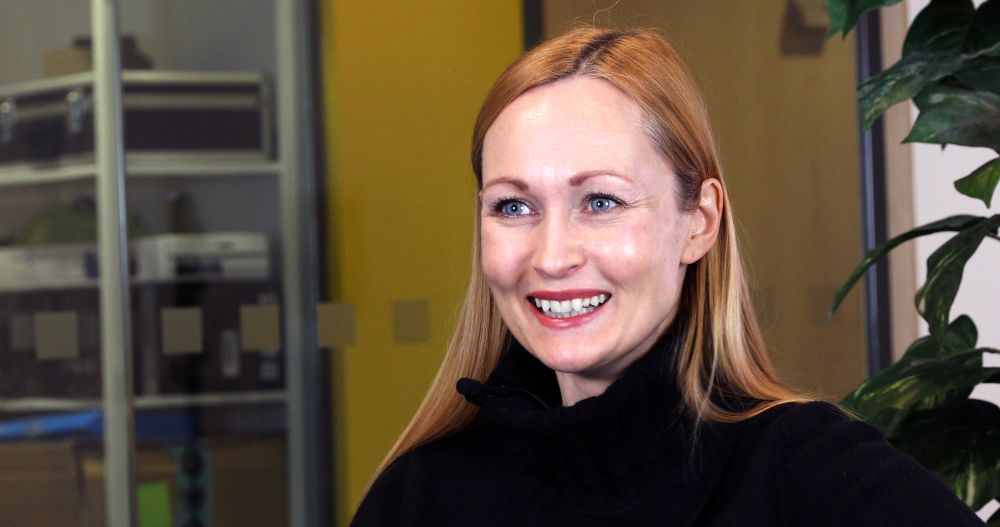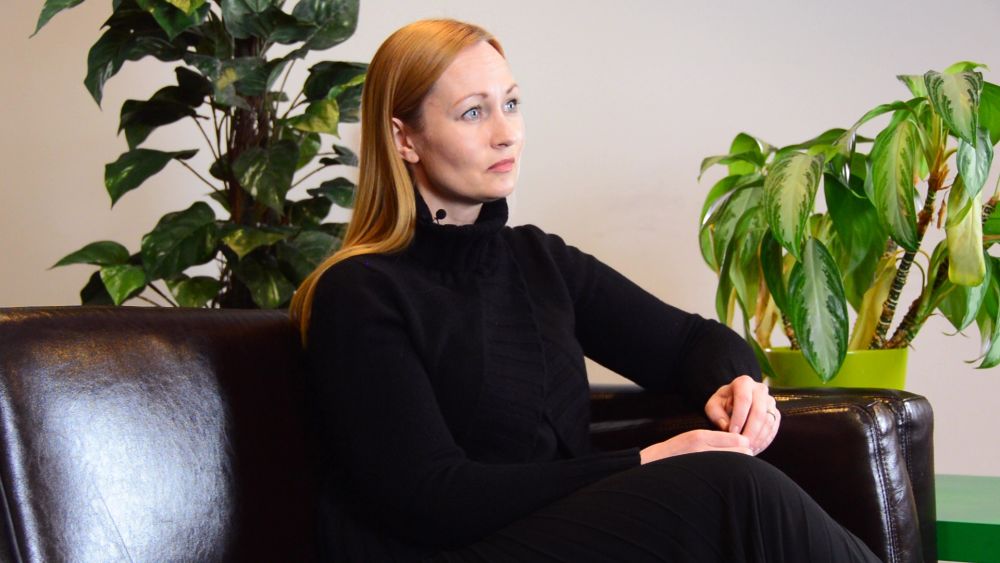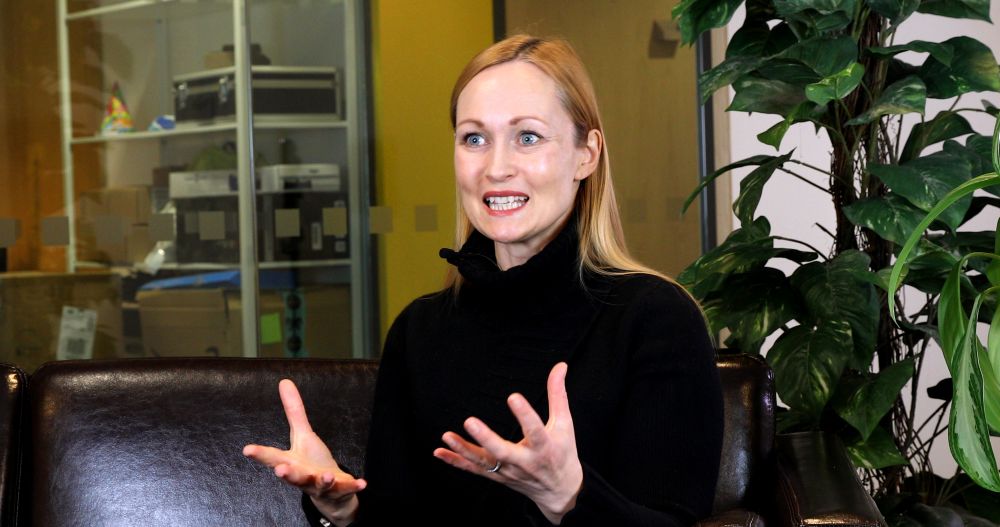Women in tech: Merlie Calvert

Though recent research shows that female founders miss out on the major part of venture capital investment in the UK, the Budget 2017 report shows that female-led startup investments are increasing after all. And while the process may be slower than we would like it to be, there’s always hope for the future.
There is a recurring theme of unbalanced treatment of female founders, but Superscript has had the pleasure of meeting the embodiment of quite the opposite. Merlie Calvert has successfully founded Farillio, a legal tech business that offers fast and easy access to all things law for small businesses.

Merlie has shown us the true wit not only with her take on life and business but also as a Woman In Tech. Her journey has been truly inspiring and the one thing that helped her throughout what might not have always been plain sailing was the people she surrounded herself with.
How did your career lead you to start your own business?
Just about the time when Napster was emerging, I had a conversation with somebody, which has haunted me through nearly two decades. I said, “Imagine if you could stream law, just like you can suddenly stream music”. He just laughed his head off, and I progressed with my career as a young lawyer.
When all the platforms started coming out, I watched them with massive enthusiasm. It was then that I was recruited by an insurance business to create a prototype of what Farillio essentially has now become. And that gave me the confidence I needed to satisfy a 20-year-old obsession and branch out to do it for a much bigger audience.
What inspired you to take the first steps?
In the end, it was other people nagging me who gave me the final push. A couple of people I’d been speaking to and built the prototype with were saying to me:
“You know this, you have such passion for this, you know you're doing a great job, but you're working for somebody else in very constrained boundaries!? You're actually going to be able to do this!”.
I wanted to be able to change the world for small businesses and it was that fundamental question, “If not now, then when?”.
What made you brave enough to start the business?
I think you need to have a really strong network around you that can really support you and tell you very honestly that there will be days, when you wake up you just don't know any of the answers. But, there will be other days, where you just nail it and think, “This is why I started!”. But to this big question, there’s a different answer for every person.
I started on my own, as a sole founder, and there have been days where I really would’ve liked a co-founder, a sounding board, someone who could really support the idea and drive it further. You have so many moments of self-doubt that having someone else going through it with you is often quite reassuring. However, I had really good people around me, so, in many ways, I had effectively the equivalent of co-founders who came and went at different stages.

What has helped you along the way?
A lot of us love listening to the stories about the “unicorns” because it's inspiring, and everybody wants to be that “unicorn-founder”, however big or small or whatever type of business you have. The reality is - the people who are most useful to you are the people who are a little way ahead of you on that journey and can say “Don't worry, I remember that well, this is what I did, here are my blueprints.” I think, the more of those discussions you have right from the start, the better equipped you are to make the decision whether it's right for you.
How did you get your first investment?
I bootstrapped for the first six to nine months with my own money, my savings, my pension, and everything that kind of was available to claw in - so big gamble! A lot of investors expect you to have done that anyway - I knew right from the outset that I was going to have to raise money, present a proposition that would be really credible. It's hard enough to raise money anyway, but investors do respect the fact that a founder is a hundred per cent committed and has taken a lot of risk in the early days.
It's a lot of conversations and pitching your ideas, you kiss a lot of frogs - you meet a lot of people who will tell you that it'd be brilliant if [your product] did “this”, which is completely not what you have envisaged or described to them.
I went through a whole series of very strange conversations with, I'm sure, very well-meaning people who would say, “It would be really great if you just had a male co-founder..." and all sorts of weird comments where you think, “Okay, I'll chalk that one up to experience” (she laughs).*
You have to make sure you're spending your time with the right people who are most likely to be receptive to investing at your stage. Otherwise, you'll find you can get pulled in a lot of directions only to find out you’ve wasted your time. It’s a classic founder pain point.
What’s your work-life balance been like?
Totally imbalanced. I've worked out that just not sleeping means that I can still be a mum, run the house, be organised, go shopping and occasionally remember to do my roots, oh, and run the business, as well.
You learn very early on just not to talk about balance. There will be weeks, even months when we go into investor rounds and I just won’t be going for drinks with the girls, because I just can't do it. There will be other days where you just think, actually, it's slow and I’m going to do something for me and my family. But for the first few years of starting a business, you just have to accept that the balance is going to be an unattainable goal.
Everyone loves to talk about work-life balance, but the reality is, if you're a founder and [your business] is working, you've got something really worth building, then you've got to make sure it works. You just have to apologise to your friends and family and say “I’m going to become the world's most antisocial person for a while, but bear with me, this is why I'm doing it”.
Do you think being a female founder has affected your journey?
I have some incredibly empowering investors, both male and female. I have a team that is pretty much an even split, but in the early days was predominantly male, and it was the guys who came in and made a lot of the dream happen. So, for me to stand up anywhere and say, “I achieved this because I'm a female founder”, would seem very disrespectful to a team that is pretty well balanced and has really pitched in and made things happen.
There are particular female investor and female founder focused investor houses, that you occasionally come across. Just like any investment opportunity, you have to look at what's right for you. I don't think the fact that I'm a female founder has really made much difference that I'm aware of.
I think it's very easy and dangerous to generalise. From my experience (and this is massively generalising, too), I think, women are less brave when it comes to starting a business. There’s just so much else invariably going on (particularly, the more into family life they are), and it can be quite hard to juggle everything.
I know some people running brilliant businesses who manage to juggle it all and make it look very easy. I think, different people have different experiences.

Who brings you inspiration?
A wonderful lady and a good friend of mine, Penny Power, has written a book called “Business Is Personal”. She is utterly incredible. her entire journey as an entrepreneur is really inspiring. Her book just speaks to the heart and soul of most founders. It's very raw, gritty, and very honest, but it's also full of tips, ideas and solutions that she and lots of founders like her have found. It is probably one of the most inspiring books I've read. but she's also one of the most inspiring people I've met, too.
But, with the exception of Penny, it’s the people I'm surrounded by every day. It's the fellow founders who are the most real, the most admirable and the most honest. They're not the people who hit the headlines, but they are incredibly inspiring to me.
What would you advise your fellow founders?
Don't try to be perfect, you know that it won't happen. One of my favourite founder friends talks to students these days; when he stands up on stage, he says, “Don't start a relationship, don't try and buy a house, try not to get pregnant at the same time you start a business, because there's every risk you could go insane”.
What keeps me sane is a joy of what we're doing and a massive belief in it, so that on days where it really does feel a bit insane, you still know and believe in why you're doing it.
We all want to create and grow what we set out. So be brave, you'll actually find out on the journey that you're stronger and braver than you feel right now.
Related links
This content has been created for general information purposes and should not be taken as formal advice. Read our full disclaimer.



